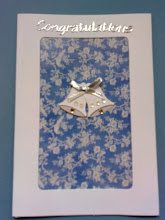After various deep wordy books (The Olive Reader, The Tale of Murasaki) and the action-packed intense (Old Kingdom Trilogy by Garth Nix), I thought I might have a read of something a little easier on the brain.
This is not to denigrate these types of books (I love pulp horror and we all need an easy read sometimes). This is the kind of supermarket shelf/airport shop read that we sometimes end up with and indeed I did see it for £1 at my local supermarket and thought it looked interesting.
The Righteous Men is a conspiracy theory type thriller. The main character is Will Monroe, a young Englishman working for the New York Times who accidentally uncovers a string of killings across the country which inexplicably seem to be linked. Before he can investigate any link between the two he discovers that his wife has been kidnapped and he is told to stop digging any further.
His search for his wife leads him to the Hassidic Jewish community in Crown Heights New York. The book does provide us with lots of interesting detail and information about the ways Hassidic Jews live, their beliefs and their rituals as will as some insight into why these are welcomed and treasured by some (Sandy, the young convert) but a struggle for others. The protagonist’s initial reaction to the Hassidic community felt strongly prejudiced and I wondered at first if the book was anti-Semitic or whether the author would help to resolve this by denuding Will of his ignorance. The latter of course, or I doubt any publisher would have touched it.
The obvious comparison for this book is Dan Brown’s The Da Vinci Code - both have religious conspiracies and codes to break, but whereas by the end of Dan brown’s book I was fed up by the annoying cliff-hangers at the end of every chapter and too-neat ending, I found this book a little better written and researched and perhaps just a shade more original. This is the first book I have read which involves Hassidic Judaism and Kabala, whereas I have come across numerous that mention the Holy Grail, Knights Templar and secret societies (think Kate Mosse’s Labyrinth for a better-written much more grown up take on the The Da Vinci Code theme).
Having said the above I still found the book predictable – you kind of know that the Hassidim couldn’t possibly be the bad guys, you just know that the hilariously-named NYT editor Townsend McDougal and the old has-been hack Terry Walton are involved somehow. I have to admit it I also found Will Munroe slightly irritating and not quite distraught enough at his wife’s disappearance and for me liking the protagonist of a story is a must, otherwise why should you care what happens next and why then should you carry reading. Also I found all the codes and clues a little bit silly – the characters suddenly “got” them at some point a lot of the time in contrast to logically working them out.
The saving grace of the book came for me in two things – the descriptions of the Hassidic community and at the end, I actually didn’t see the bad guys coming. Bourne does manage to keep you guessing about the true identity of the villains until the end which I suppose was a good enough reason for me to read the book to the end.

This is not to denigrate these types of books (I love pulp horror and we all need an easy read sometimes). This is the kind of supermarket shelf/airport shop read that we sometimes end up with and indeed I did see it for £1 at my local supermarket and thought it looked interesting.
The Righteous Men is a conspiracy theory type thriller. The main character is Will Monroe, a young Englishman working for the New York Times who accidentally uncovers a string of killings across the country which inexplicably seem to be linked. Before he can investigate any link between the two he discovers that his wife has been kidnapped and he is told to stop digging any further.
His search for his wife leads him to the Hassidic Jewish community in Crown Heights New York. The book does provide us with lots of interesting detail and information about the ways Hassidic Jews live, their beliefs and their rituals as will as some insight into why these are welcomed and treasured by some (Sandy, the young convert) but a struggle for others. The protagonist’s initial reaction to the Hassidic community felt strongly prejudiced and I wondered at first if the book was anti-Semitic or whether the author would help to resolve this by denuding Will of his ignorance. The latter of course, or I doubt any publisher would have touched it.
The obvious comparison for this book is Dan Brown’s The Da Vinci Code - both have religious conspiracies and codes to break, but whereas by the end of Dan brown’s book I was fed up by the annoying cliff-hangers at the end of every chapter and too-neat ending, I found this book a little better written and researched and perhaps just a shade more original. This is the first book I have read which involves Hassidic Judaism and Kabala, whereas I have come across numerous that mention the Holy Grail, Knights Templar and secret societies (think Kate Mosse’s Labyrinth for a better-written much more grown up take on the The Da Vinci Code theme).
Having said the above I still found the book predictable – you kind of know that the Hassidim couldn’t possibly be the bad guys, you just know that the hilariously-named NYT editor Townsend McDougal and the old has-been hack Terry Walton are involved somehow. I have to admit it I also found Will Munroe slightly irritating and not quite distraught enough at his wife’s disappearance and for me liking the protagonist of a story is a must, otherwise why should you care what happens next and why then should you carry reading. Also I found all the codes and clues a little bit silly – the characters suddenly “got” them at some point a lot of the time in contrast to logically working them out.
The saving grace of the book came for me in two things – the descriptions of the Hassidic community and at the end, I actually didn’t see the bad guys coming. Bourne does manage to keep you guessing about the true identity of the villains until the end which I suppose was a good enough reason for me to read the book to the end.
































No comments:
Post a Comment